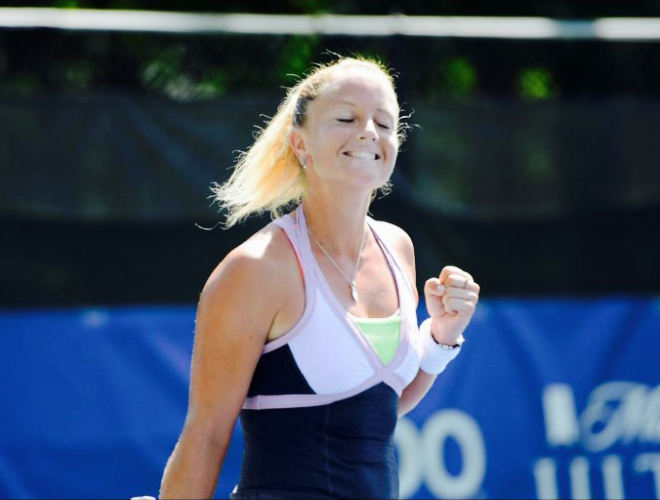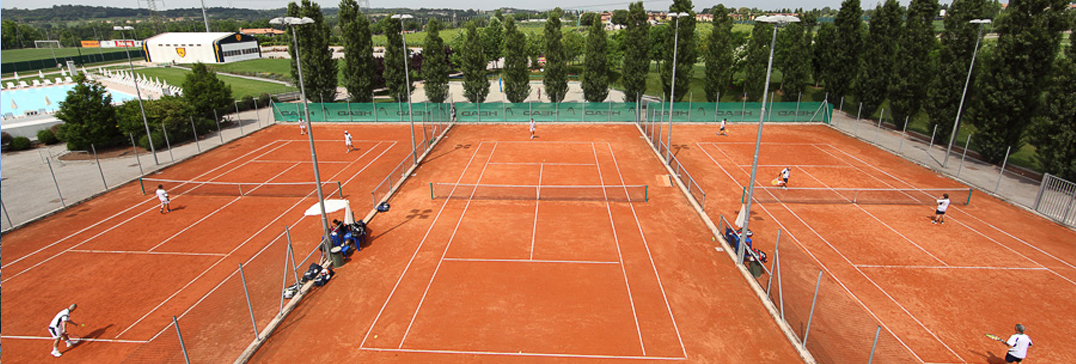24/05/2018 | Emily Webley-Smith

Tennis is a rollercoaster ride. The clever scoring system, the knockout format of most tournaments, and the continuous roll of the professional tour throughout the year, lend themselves to more highs and lows than most experience in a lifetime. So how do we deal with the ups and downs as players? The profound words of Rudyard Kipling etched above the entrance to Centre Court say:
"If you can meet with triumph and disaster and treat those two impostors just the same."
For life alone this is an ideal philosophy to live by, but for tennis, it's just a game right?!
In some ways it really is, and through my years of playing there have been times when it has certainly helped to keep things in perspective and remember that winning and losing at hitting a fluffy yellow ball over a net is not that important in the greater scheme of things. So why does it mean so much to us when we win and hurt like hell when we lose?
For me it's a game I've given my life to, made endless sacrifices for, and one that I apply myself everyday to, in the pursuit of improvement. Everytime you walk on for a match, you are putting yourself on the line. It's just you against your opponent, fighting with all you have on that day. Within a match, tennis will make you question yourself, doubt yourself, be proud of and hate yourself, challenge yourself, surprise yourself and sometimes even defeat yourself. So when you walk off court having won or lost, dealing with these emotions can be a huge battle, and you must learn to survive with your sanity (relatively!) intact.
You are going to lose ..... unless your name is Roger!
When I was younger, I found losing a lot harder to deal with. Wracked with tears, hours spent overanalysing where I went wrong, long runs or no food, 2 hour post match practice sessions, I've done it all. Anything to deal with the feeling of not being good enough. But you begin to realise that this negativity wastes too much valuable time, and feeling sorry for yourself is not helpful in moving forward, and you get tougher. Every week from a standard 32 maindraw and 32 qualifying draw, 63 people will lose whether that's 1st round or in the final. Sometimes twice if you are playing doubles also. Over the course of a year if you play 30 tournaments, other than let's say a couple of titles, that means you will lose nearly every single week, unless you are Roger Federer. The majority of players, whether they are top 500 or top 50, will finish their career with a 1:1 win loss ratio. That's a lot of losing!
Coping Strategies
My coping strategies have evolved through a constant process of learning about myself, trial and error, and being guided on occasion by some good advice or some words I didn't want to hear. I used to feel terrible about a loss for the rest of the day, the next day and sometimes even longer; now, I try to give myself an hour. Mostly I'm on my own in this time, which given that it's not pretty, is probably a good thing! I still cry, occasionally, after the toughest of battles, I still get angry often, and I always feel disappointed when I haven't performed well. But I accept these feelings now and can acknowledge that it's because I care. I find sticking to my routines of cool down and physical recovery really help me mentally also, calming as they are in their familiarity. It is in times of reflection in the 20mins cool down on the bike, or a quiet corner stretching on my yoga mat that I come back time and again to the same question, did I give 100%? And if I did, I'm ok with that now, I did my job. I have built a resilience and a strength of character that always says, I will try again tomorrow.
Time for Analysis
Later, comes the rational analysis and brutally honest appraisal of what I could have done better, and the new positive reinforcement I am committing to of finding three things I did well, something I never find easy to do. The practical ways of dealing with a loss vary widely on the situation, sometimes I will practice or go to the gym for an extra session -but not as a punishment anymore, merely to get better. Sometimes I will be packing to rush to the next event and sorting travel arrangements, and sometimes I will just have a glass of wine with friends after my day of work is done.
But what about winning? How does that feel and what is there to deal with about that?!
I love winning. There are few things better than knowing your hard work has paid off and that you succeeded. It brings confidence, relief, happiness, and being the hugely competitive person that I am, a good deal of satisfaction. I still get excited when I win, but I have learned the overwhelming dizzy with joy hyperactivity I used to have when I was little, can be as damaging as the devastation of a loss. For winning can create expectation, from yourself and those around you, and a feeling of entitlement that tennis is quick to tear down. More often than not, there is another match to prepare for, another tournament around the corner, and no time to wallow in success. Equally winning can be scary. It can show you how good you can be, and make you doubt whether you can be that good again tomorrow. So the routines are the same, come win or lose- the cool down and the recovery still happens, the analysis and the preparation for the next day. Nothing changes, you are still the same person, you just won or lost a tennis match. For me when I win and I am alone is when I wish most I could share the joy with those closest to me. They often see the struggle and the tiredness and the broken body, but they rarely get to experience the fleeting moments of joy that I do, other than from reading a message, watching the livescores, or seeing my eyes sparkle when FaceTime connects.
So what does this rollercoaster ride teach us?
I've learnt that it is important to enjoy winning because it will pass, but to survive losing also, because it too shall pass. I've learnt that Rudyard is absolutely correct about triumph and disaster and that the important thing is to surely accept both with humility and grace, to keep striving to get better, and to enjoy the process of doing so. Oh, and to smile, it's just a game after all....

